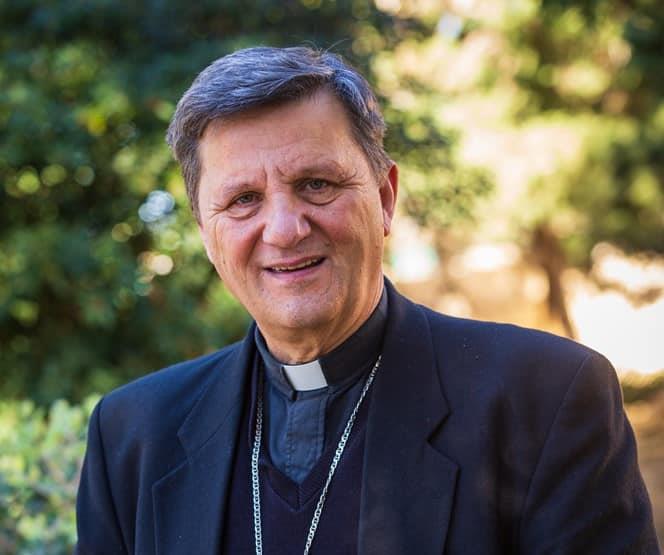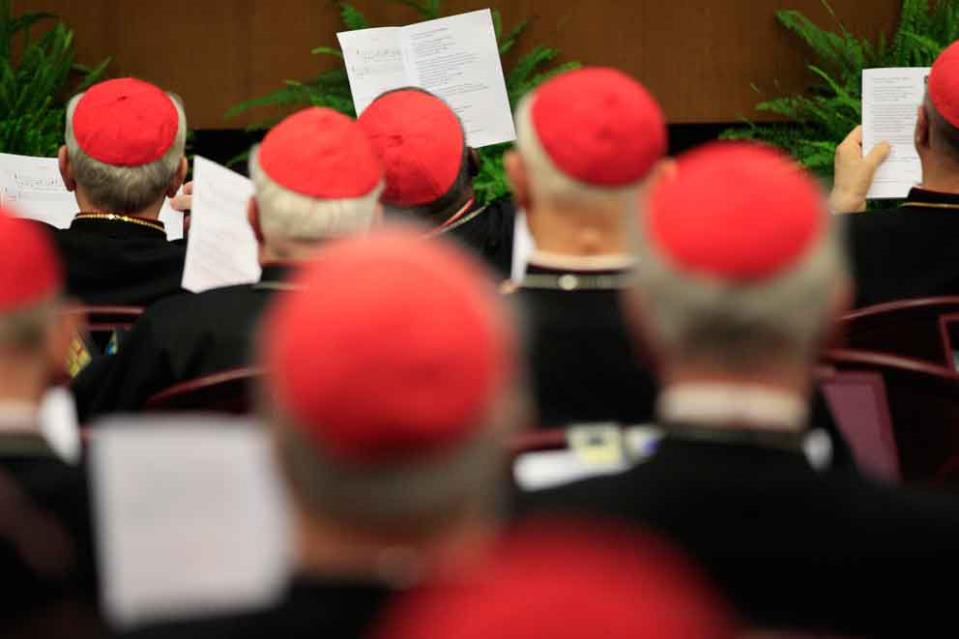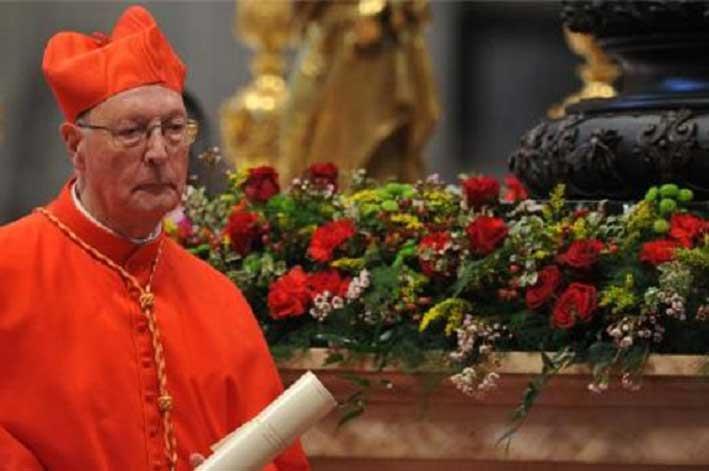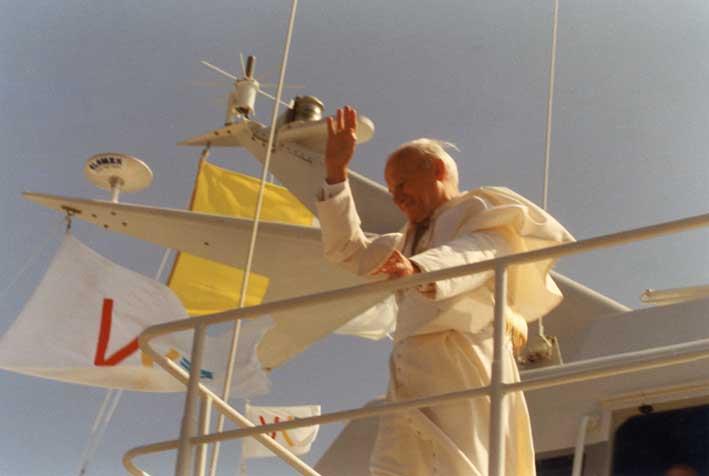Like any other organisation, the Church has its own hierarchy.
The pope is its leader and, right behind him, there is then the College of Cardinals, a group of high-ranking prelates known also as princes of the church, who are solely responsible for the election of the pontiff when one dies or, as happened recently, one abdicates the role.
Although, technically speaking, every baptised Catholic can be elected pope, the head of the Church is selected from among the cardinals. At present, there are 219 cardinals, all of whom were elevated to the role by the last three popes – Pope John Paul II, Pope Benedict XVI and the current incumbent, Pope Francis.
Not all of them can vote for the next pontiff. Any cardinal who is over 80 at the time a pope dies or retires is ineligible to vote. The age limit is only a recent addition in the Church’s 2,000-year history – it was introduced by Pope Paul VI in 1970 as part of a wide-ranging reform of the Church structure, which included a new rule preventing cardinals aged over 80 from holding positions in administrative departments and other permanent institutions of the Vatican.
The Church has now announced that 13 new cardinals will be created on 28 November. Only nine are cardinal electors; that is, cardinals entitled to vote for a new pope should a conclave take place now. By that day, another cardinal would have reached the age of 80; he is Donald William Wuerl, from the United States, who turns 80 on 12 November. Another six cardinals are set to turn 80 next year.
The apostolic constitution also lays down that a maximum 120 cardinals can participate in a conclave to elect a new pope. As things stand now, the number of eligible cardinals is exactly 120. This means that, on the day the new appointments are made, the number of cardinal electors will increase to 128. Although the written rule is that the election of a pope is restricted to 120 cardinals, by effectively having more cardinal electors in office, Pope Francis is establishing a new limit – because all 128 would be entitled to vote should anything happen to him.

One of the new appointees will be former Gozo Bishop Mario Grech. Last year, Grech was appointed pro-secretary general of the Synod of Bishops, a traineeship position before he completely took over the role this year, replacing Cardinal Lorenzo Baldisseri who turned 80 in September, and is therefore no longer eligible to vote for a new pope.
In Gozo, Grech was substituted by Anton Teuma.

College of Cardinals
Cardinals are created by popes, and popes are elected by cardinals.
Observers believe that pontiffs choose cardinals from among bishops who are closest to their way of thinking, and each time a group of new cardinals is created, the balance with regard to the pope’s eventual successor shifts.
Other considerations include geography. Although the highest percentage of cardinals still comes from Europe, in more recent years popes have seen that cardinals represent as wide a spectrum of countries as possible.
At present, there are 100 cardinals who hail from European countries, 49 of whom can still vote for a pope. But now there are also 29 African cardinals, 33 from North America, 25 from South America, 26 from Asia and six from Oceania.
The College of Cardinals is made up of prelates from 89 countries. When the new cardinals are created on 28 November, Malta, Rwanda and Brunei will be added to the list. Today, 67 countries have cardinal electors; the number will rise to 70 with the new appointments.
It stands to reason that most of the cardinals who are no longer eligible to vote for a new pope are the ones that were created two or three decades ago by Pope John Paul II, who died in 2005.
The longest serving cardinals are three who were appointed in 1983. They are Michael Michai Kitbunchu (Thailand), Alexandre do Nascimento (Angola) and Thomas Stafford Williams (New Zealand), all of whom are in their 90s.
They are not the oldest cardinals. The oldest is Albert Vanhoye (France), who is 97.
Sixty-six of the current members of the College of Cardinals were appointed by Pope John Paul II, but only 16 of them remain eligible to vote, as the rest have reached 80 years of age. Of the 70 cardinals appointed by Pope Benedict XVI, 40 remain electors. Sixty-four of the 83 cardinals appointed so far by Pope Francis can vote for the next pope.

Maltese cardinals
Mario Grech will be the third Maltese to become cardinal. In the Vatican’s eyes, and those of the international media, Malta and Gozo are considered as one. We are, after all, one nation. Naturally, Gozitans will be proud that one of the own has made it to such a high-ranking position. Grech is, as is well known, the first Gozitan to become cardinal.
The first Maltese cardinal was Fabrizio Sceberras Testaferrata, who was born to a noble family in 1757. He was created a cardinal by Pope Pius VII in 1816. Sceberras Testaferrata took part in three papal conclaves – those that elected Pope Leo XII in 1823, Pope Pius VIII in 1829 and Pope Gregory in 1830-31. He died in 1843 and was buried in the cathedral of Senigallia, in the province of Ancona, where he served as bishop.
The second Maltese cardinal was Prospero Grech, who was born in Vittoriosa in 1925. He was created a cardinal by Pope Benedict XVI in 2012, becoming the first Augustinian priest to be named a Prince of the Church in more than a century. Grech was 87 years old at the time, and so ineligible to vote in the conclave that took place only a year later, when Pope Benedict abdicated and Cardinal Jorge Bergoglio became Pope Francis. Grech died in Rome last year.
The third will be Mario Grech, who was born in Qala in 1957. He was ordained a priest in 1984 and took over as head of the Gozo diocese in 2006, serving there until 2019, when he was appointed pro-secretary general of the Synod of Bishops. Last month he became secretary general, replacing Cardinal Lorenzo Baldisseri upon his reaching the 80th birthday.

Catholic Malta?
History tells us that Malta converted to Catholicism when St Paul was shipwrecked here on his way to be beheaded in Rome. For centuries, Malta was considered to be one of the most ardent Catholic countries, with nearly 100 per cent of the population attending Sunday Mass regularly.
But things have changed rapidly in recent years. The latest Church census carried out in Malta in 2017 showed that the number of people who attended Mass on census day was only 111,578, or just 36 per cent of the Catholic population. This was a staggering 14 per cent drop in attendance when compared to the previous census held in 2005. As expected, the census also showed that the majority of attendees are people in the older generations.
Although the Church remains relevant in today’s society and its voice continues to be given weight, its influence over the Maltese population has seen a decline. What is, perhaps, ironic is that in times when Malta could certainly be described as being more Catholic than it is today, popes did not visit the islands and we had only one cardinal in the first 2000 years of Church history.
Now, as the number of practising Catholics in Malta continues to decline sharply, the country has welcomed the pope three times in the last 30 years (and there could have been a fourth, were it not for Covid-19, as Pope Francis was forced to cancel his visit scheduled for last May), and we’ve had two cardinals appointed in the first 20 years of the third millennium.

And what about Charles Scicluna?
For years it was thought that Charles Scicluna was closer to be named a cardinal than anybody else. He served the Vatican in Rome for many years, has a reputation of being the Vatican’s most respect expert in dealing with sexual abuse by priests, and has been given several assignments as an investigator into allegations of sexual misconduct in dioceses around the world.
In a way, Scicluna’s career is the opposite of Grech’s. While Grech built it up in the Gozo diocese and later became its head before moving to Rome last year, Scicluna initiated it at the Vatican before returning home to serve as Malta’s Archbishop.
With Grech’s appointment as the pro-secretary general of the Synod of Bishops last year, and his taking over the role completely last month, Grech surpassed Scicluna in terms of chances to be named a cardinal. Grech became closer to the Vatican corridors of power, and it was only natural that he is elevated to cardinal, given that his predecessor Lorenzo Baldisseri wore the red biretta.
Two years younger than Grech, Scicluna could still harbour the ambition of being named a cardinal. Scicluna does have the credentials to hold such a position, considering the service he has given to the Vatican in the different roles he has occupied.
But would tiny Malta be afforded so much space and power? Would Malta, which hosts a very small fraction of the worldwide Catholic population, be given two votes in a conclave?